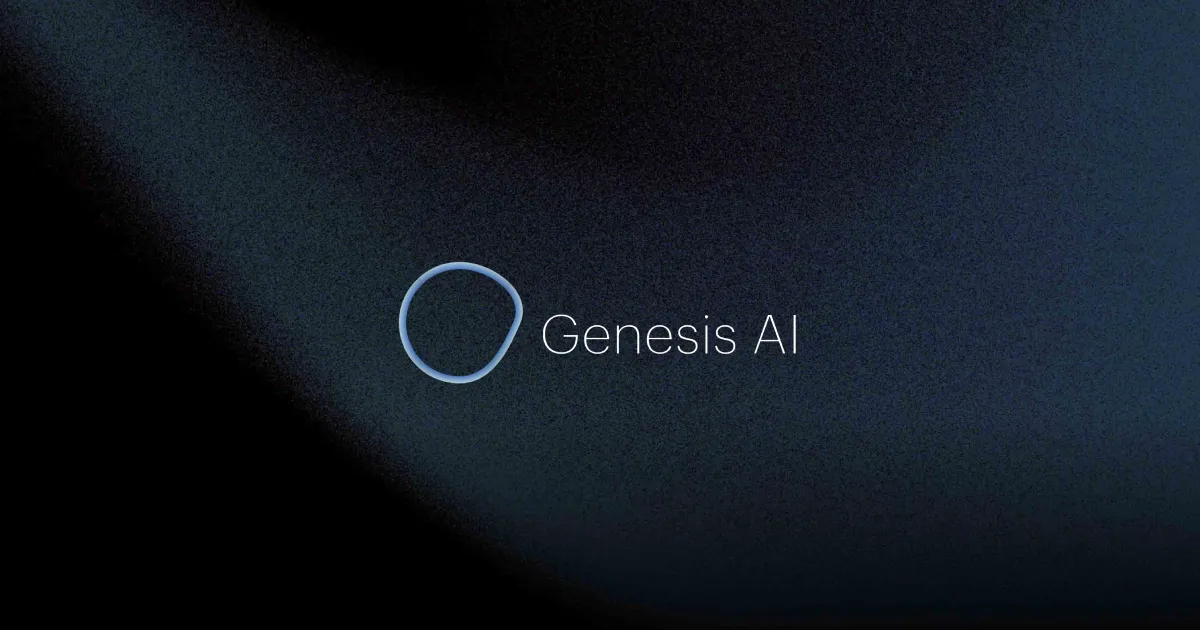Genesis AI raises $105M to build AI for robots

In a bold move that signals growing ambition in the field of robotics and artificial intelligence, Genesis AI has emerged from stealth mode with a staggering $105 million seed round, co-led by Eclipse Ventures and Khosla Ventures. The startup, founded just last December, is aiming to build a general-purpose AI model designed to power a wide spectrum of robots—from those performing laboratory tasks to domestic helpers.
At the helm are Zhou Xian, a PhD in robotics from Carnegie Mellon University, and Théophile Gervet, a former research scientist at French AI lab Mistral. Together, they’ve set out to address one of the most pressing challenges in robotics AI: creating a model that can generalize across many physical tasks, much like how large language models (LLMs) work with text.
The Challenge: Data for the Physical World
While LLMs thrive on vast amounts of readily available text data, building foundational models for robotics presents a tougher obstacle—data grounded in the physical world. Real-world data collection is expensive, time-consuming, and often limited in scope. This bottleneck has hampered progress in developing robots that can seamlessly adapt to different tasks and environments.
Genesis AI’s solution? Synthetic data.
Synthetic Data Meets Advanced Simulation
At the heart of Genesis’ approach is a proprietary physics simulation engine, developed originally as part of a massive academic project led by Xian in partnership with researchers from 18 universities. This high-fidelity simulation platform allows Genesis to generate realistic synthetic training data at scale—data that mimics the complexity and variability of the real world without the associated costs or risks.
Genesis claims its simulation technology gives it a critical edge, accelerating model development beyond what is possible with existing platforms like Nvidia’s simulation tools. This allows the company to iterate quickly and push forward with its goal of building a model that can support robotics across industries.
A Growing Team, Global Ambition
Many researchers involved in the original academic project have joined Genesis, forming a team of over 20 experts in robotics, machine learning, and computer graphics. The company is headquartered in Silicon Valley and Paris, giving it access to both the North American tech ecosystem and European AI research talent.
The Competitive Landscape
Genesis is not alone in chasing the dream of a robotics foundation model. Rivals like Physical Intelligence, which recently raised $400 million, and Skild AI, now valued at $4 billion, are also investing heavily in this space. However, Genesis believes its novel approach to simulation and data generation will set it apart.
Kanu Gulati, a partner at Khosla Ventures, expressed strong confidence in Genesis’ vision:
“It’s a big unknown: Will anybody have a large robotics foundation model that will generalize across tasks? That’s a bet we want to go after… Of all the teams we have seen, we like [Genesis’] approach.”
What’s Next
Genesis plans to release its foundational robotics model to the broader community by the end of the year, a move that could provide a major stepping stone toward widespread robotic automation.
If successful, Genesis could play a pivotal role in shaping the future of general-purpose robotics, bringing us closer to machines that learn and adapt like humans—but move with robotic precision.





